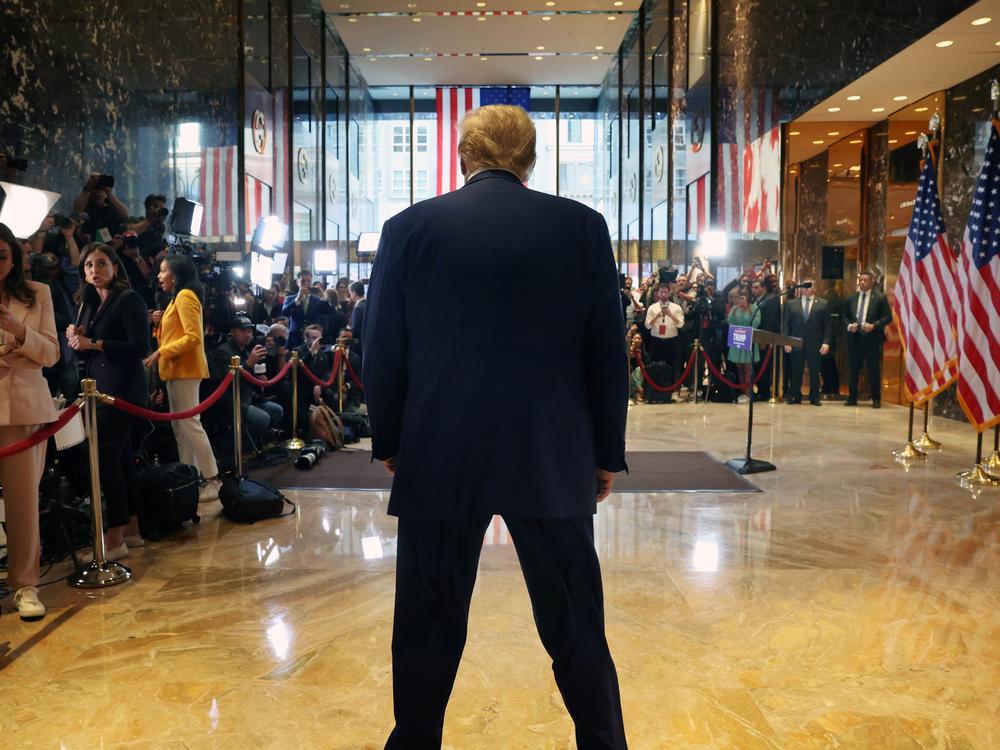Section Branding
Header Content
Trump gets criminal sentencing delayed till after presidential election
Primary Content
A New York judge on Friday delayed the sentencing in a criminal case against former President Donald Trump in order to ensure the court is seen as politically impartial.
Judge Juan Merchan set the new sentencing date for Nov. 26, a few weeks after the election. Trump was convicted of falsifying business records to hide payments to an adult film star.
“The imposition of sentence will be adjourned to avoid any appearance—however unwarranted—that the proceeding has been affected by or seeks to affect the approaching Presidential election in which the Defendant is a candidate,” Merchan said in his decision. “The Court is a fair, impartial, and apolitical institution.”
Merchan also postponed consideration on whether to overturn the criminal conviction in light of a recent Supreme Court decision on presidential immunity and other evidence. That hearing is now set for Nov. 12.
The Supreme Court decision on July 1 came after Trump was convicted in New York — but before he was sentenced. The timing threw into disarray what was already an unprecedented felony conviction against a former president and current Republican presidential nominee.
Trump’s lawyers say the Supreme Court decision means his case, brought by Manhattan District Attorney Alvin Bragg, should be cleared entirely.
"The Manhattan D.A. Witch Hunt has been postponed because everyone realizes that there was NO CASE, I DID NOTHING WRONG!" Trump posted on the Truth Social website. "It is a political attack against me."
Trump's legal team argued that various testimony, such as that of former White House employees, and evidence, like statements made while he was president, violate the Supreme Court ruling that decided presidents have immunity for official acts they take in office.
His lawyers have spent the summer trying to blunt the case’s impact on the election, in part by accusing Merchan of political bias. They’ve asked Merchan to overturn the conviction, appealed it, sought to delay the sentencing until after the election, and remove Merchan and move the case to federal jurisdiction.
A spokeswoman for the district attorney, Danielle Filson, said the DA's office "stands ready for sentencing on the new date set by the court."
"A jury of 12 New Yorkers swiftly and unanimously convicted Donald Trump of 34 felony counts," she said in a statement.
Fundraising tool
New York jurors in May unanimously agreed that Trump falsified business records to conceal a $130,000 hush money payment to adult-film star Stormy Daniels to influence the 2016 presidential contest.
Even without a delay in his sentence, Trump has sought to use the conviction as a fundraising tool. Within 24 hours of the guilty verdict, Trump’s campaign boasted of raising millions of dollars. Since officially being named GOP presidential nominee, he has continued to discuss the trials at various campaign events.
The jury heard from 22 witnesses during about four weeks of testimony in Manhattan’s criminal court. Jurors also weighed other evidence — mostly documents like phone records, invoices and checks to Michael Cohen, Trump’s once-loyal “fixer,” who paid Daniels to keep her story of an alleged affair with the former president quiet.
The facts of the payments and invoices labeled as legal services were not in dispute.
What prosecutors needed to prove was that Trump falsified the records in order to further another crime — in this case, violating the New York election law that makes it a crime for “any two or more persons [to] conspire to promote or prevent the election of any person to a public office by unlawful means.”
The jurors were able to choose whether those unlawful means were violating the Federal Election Campaign Act, falsifying tax returns or falsifying other business records.
The verdict came more than a year after a grand jury indicted Trump on March 30, 2023, marking the first time a former or sitting president faced criminal charges.
—With assistance from Franco Ordoñez.

